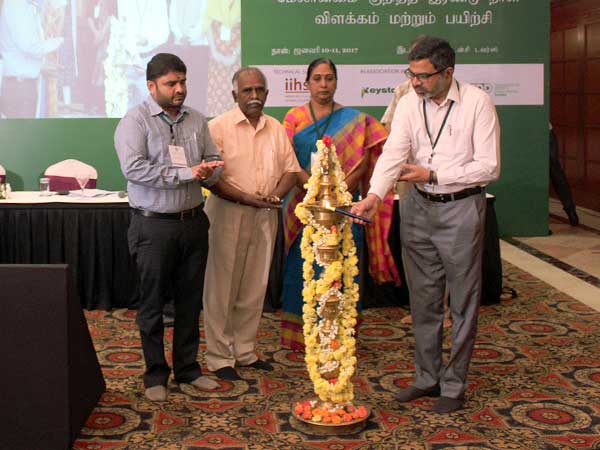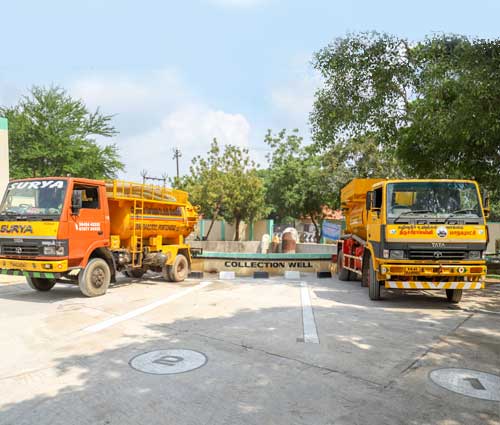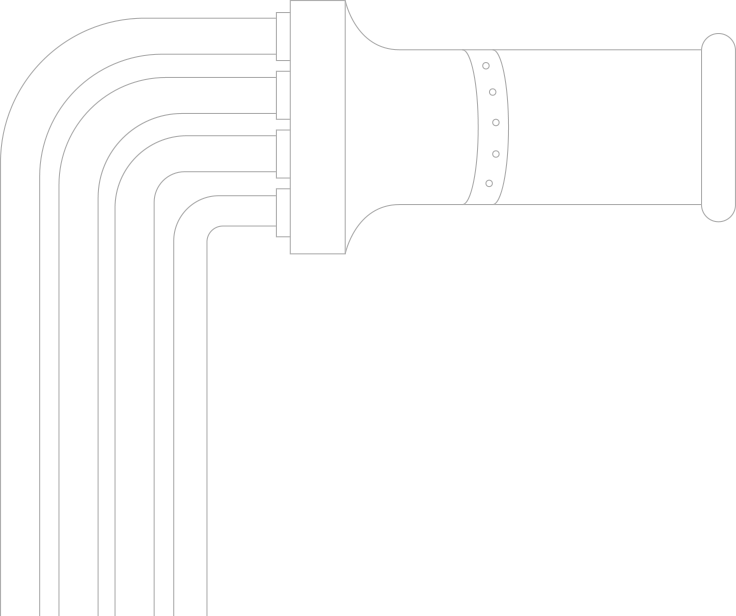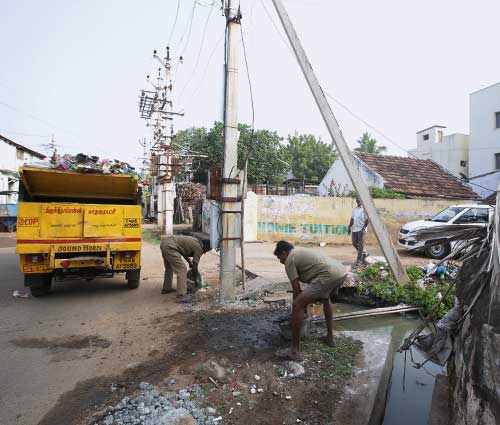
The government of Tamil Nadu (GoTN) has been a pioneer in the sanitation sector by recognising the importance of full sanitation coverage as core to improved standards of public health. It has prioritised the full cycle of sanitation, including strengthening of septage management as an economical and sustainable complement to network-based sewerage systems.
The Tamil Nadu Urban Sanitation Support Programme (TNUSSP) aids the GoTN in scaling urban sanitation, especially fecal sludge management (FSM) solutions across the state.
Launched with support from the Bill and Melinda Gates Foundation (BMGF), TNUSSP has been set up as a technical support unit (TSU) within GoTN’s Municipal Administration and Water Supply (MAWS) department.
The programme led by the 35-member team at the Indian Institute for Human Settlements (IIHS) works in collaboration with eight partner organisations.




Scope of the Programme
TNUSSP provides support to GoTN, for requisite policies, regulations, and financing; infrastructure design and technology; quality assurance; capacity building and behaviour change communications.
TNUSSP is currently working in two urban locations to test and demonstrate approaches, build credibility for innovations, and understand on-the-ground challenges. The team works with urban local bodies, private informal sector and diverse urban communities including the urban poor, women SHGs, and sanitation workers. The selected cities are representative of the urbanisation pattern of Tamil Nadu:
- Tiruchirappalli or Trichy, a partially-sewered large city that needs FSM as a complementary solution to become 100 per cent sanitation secure.
- Periyanaicken-Palayam (PNP) and Narasimhanaicken-Palayam (NNP), a cluster of two small towns, that will use FSM as a stand-alone solution to demonstrate clustering of towns.

City Wide Inclusive Sanitation
Trichy city has been selected by the BMGF as one of eight cities globally for a Citywide Inclusive Sanitation (CWIS) Programme. It rests on four main pillars:
- Prioritise the human right of citizens to sanitation—equitable and accessible for all
- Deliver safe management of human waste along the whole sanitation service chain, from the toilet to safe treatment and reuse
- Integrate sanitation in urban planning and renewal, providing liveable and sanitary environments
- Commit to working in formal and informal partnerships to deliver CWIS


In Trichy City, we are working working towards demonstrating improvements along the full cycle of sanitation through innovative solutions that deliver safe management of human waste. The programme engages multiple stakeholders, with a focus on addressing the sanitation needs of the urban poor, the vulnerable, and women and girls. This includes improving the living and working conditions of sanitation workers, as well as mainstreaming gender intentional sanitation in the city.
The programme seeks to sustain interventions by strengthening governance and accountability for delivering inclusive sanitation services.
It involves strengthening operational mechanisms for inclusive sanitation within Trichy City Corporation as well as fostering greater citizen engagement.
A key aim is to develop Trichy as a knowledge hub for citywide and inclusive sanitation, by building partnerships with local institutions that disseminate knowledge and function as resource centres.
Guided by Trichy City Corporation, the Programme is being delivered by a consortium of partners (Gramalaya, PDI, YUGAA, Bharathidasan University and Hasiru Dala) led by IIHS.

